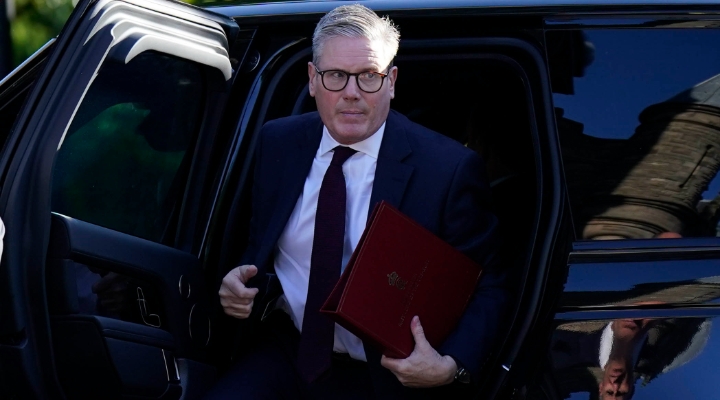Sales of higher-risk Venture Capital Trusts (VCTs) are booming. Latest figures show that in this tax year £474 million has been invested to date – more than double the amount that was invested in these vehicles at this point last year.

VCTs are long-term investments which pay tax-free dividends.

This increased demand has meant a number of popular VCTs have already reached their funding capacity, and have closed their doors to new investors well ahead of the end of the tax year.
VCTs are a specialist type of investment trust, where the underlying investments are in start-up and fledgling companies. This makes them higher risk than conventional equity investments, as there can be a higher failure rate with these untested business ventures.
To encourage investment in these start-up businesses, the Government offers attractive tax breaks on VCT investments. Investors can get up to 30% tax relief on initial contributions, dividends are paid tax-free, plus there is an exemption from capital gains tax.
These generous tax breaks are clearly one of the main attractions of VCTs, but advisers warn that this shouldn’t sway investment decisions.
Chelsea Financial Services managing director Darius McDermott says: “The investment case has to be robust. Investors have to be able to shoulder this level of investment risk, as returns can be volatile.”
As he points out, some VCT managers have a good record of investing in successful companies at an early stage, and generating decent returns. But not all VCTs have produced positive returns for investors.
VCTs Benefit from Pension Changes
Advisers may warn that “the tax tail shouldn’t wag the investment dog” but it’s clear that tax considerations are driving increased demand for VCTs.
VCTs sales have increased following restrictions on pension tax relief, particularly for higher earners. Although it is possible to get up to 45% tax relief on pensions, the amount you can invest in these retirement savings has been curtailed in recent years.
The ‘lifetime allowance’ now stands at £1 million - compared to £1.8 million a few years ago. Most people can invest £40,000 a year into pensions but for the highest earners this can restricted to as little as £10,000.
In contrast it’s possible to invest up to £200,000 in VCTs each year.
Alex Davies, the chief executive of Wealth Club, a specialist high net worth broker, says: “VCTs are attracting investment at record levels as higher-earners who can no longer invest large sums in pensions are seeking a tax-efficient alternative.”
However, Davies says this isn’t the only reasons for the recent increased demand for VCT shares. There were fears that the Government might restrict the tax relief available on VCTs in the Autumn Budget. Davies says: “This followed a Government review at the end of last year. Fortunately restrictions did not materialise but it did mean investors piled in ahead of any potential changes.”
What are the Tax Benefits?
The 30% income tax relief is only available on investment into new VCT fundraisings; it’s isn’t available to those buying shares in VCTs on the secondary market.
This relief comes in the form of a rebate, so if you invest £10,000 you will either get a £3,000 cheque from HMRC, or a £3,000 reduction applied to your tax return.
However to claim the maximum rebate investors need to have paid at least an equivalent amount in tax. In other words, if you’d only paid £2,000 in tax, this would be the maximum relief granted on the same £10,000 VCT investment. Investors have to hold this investment for a minimum of five year, otherwise they will be required to pay back this rebate.
Any dividends paid by the VCT are tax-free and gains are not subject to CGT. These tax-free dividends are an attractive perk, particularly for higher earners.
Normally dividends are taxed at 7.5% (basic-rate taxpayers), 32.5% (higher-rate taxpayers) and at 38.1% (additional-rate taxpayers). No tax is paid on the first £5,000 of dividends received each year, but this allowance is being reduced to £2,000 from April 2018.
Those buying VCTs on the secondary market qualify for the CGT exemption and tax-free dividends.
Understanding VCT Risks
VCTs are more speculative investments as the underlying assets are in start-up businesses. But this isn’t the only risk. The market for selling on VCT shares is illiquid. VCTs are listed on the London Stock Exchange, but there might only be one ‘market maker’ dealing in these shares, which can affect pricing. Many shares trade at substantial discounts.
There is often the option to sell-back to the VCT manager, most will purchase shares at a 5% or 10% discount to net asset value.
If VCTs fail to raise sufficient funds this may mean assets are concentrated in a smaller number of companies, which can increase risks further. Charges are also higher when compared with more generalist investment trusts. Many of these VCT also have performance fees.
Some VCTs run for a limited period, often five to seven years. At this point many look to wind-up the trust and distribute any gains made to investors. Most VCT don’t have a fixed-end date. Given the high-risk nature of these investments, most advisers recommend a minimum investment horizon of 10 years.
However Davies says: “Many VCT investors don’t sell these holdings. They are long-term investments which pay tax-free dividends.” He explains that these dividends are often generated when the managers ‘sell-on’ a company that had initially invested in.
Performance though can vary hugely. Figures from the Association of Investment Companies show that over the past five years Artemis VCT (AAM) has produced a total return of 286%. Mobeus Income & Growth 2 (MIG) has produced a return of 134%, while Maven Income & Growth VCT 5 (MIG5) has produced a return of 99.8% and Octopus Titan (OTV2) a return of 48.7%.
However over the same timescale, Oxford Technology VCT (OXT) has recorded a loss of 36%, Downing 3 VCT (DP3F) a loss of 31.5%, and Octopus VCT 4 (OCV4) a loss of 13.1%.
What Should I Invest In?
A number of popular VCTs have already reached capacity and closed to new investors. These include all Northern VCTs and Baronsmead VCTs plus Octopus AIM (OSEC) Unicorn AIM (UAV) and ProVen VCT (PVN).
Given the nature of the underlying investments, most VCTs aim to raise a fixed tranche of funding, which they will gradually invest in fledgling business opportunities.
When VCT have reached maximum capacity they are usually closed to new investors, although many may open new funding tranches in future years. Often VCT managers will have several “open” offerings. This is because there can be limits on the maximum investments into any one company from each trusts.
However despite these closures there are still a range of VCT options for interested investors.
These include one of the largest and most popular VCT, Octopus Titan - which has raised a significant £125 million so far this year.
Other options include Mobeus Income & Growth (MIG4) and Maven Income and Growth 5, Downing ONE VCT (DDV1) and Haregreave Hale AIM VCT (HHVT), which invests in AIM-listed shares and is co-managed by Giles Hargreave, who also runs the Marlborough Special Situations fund.





























